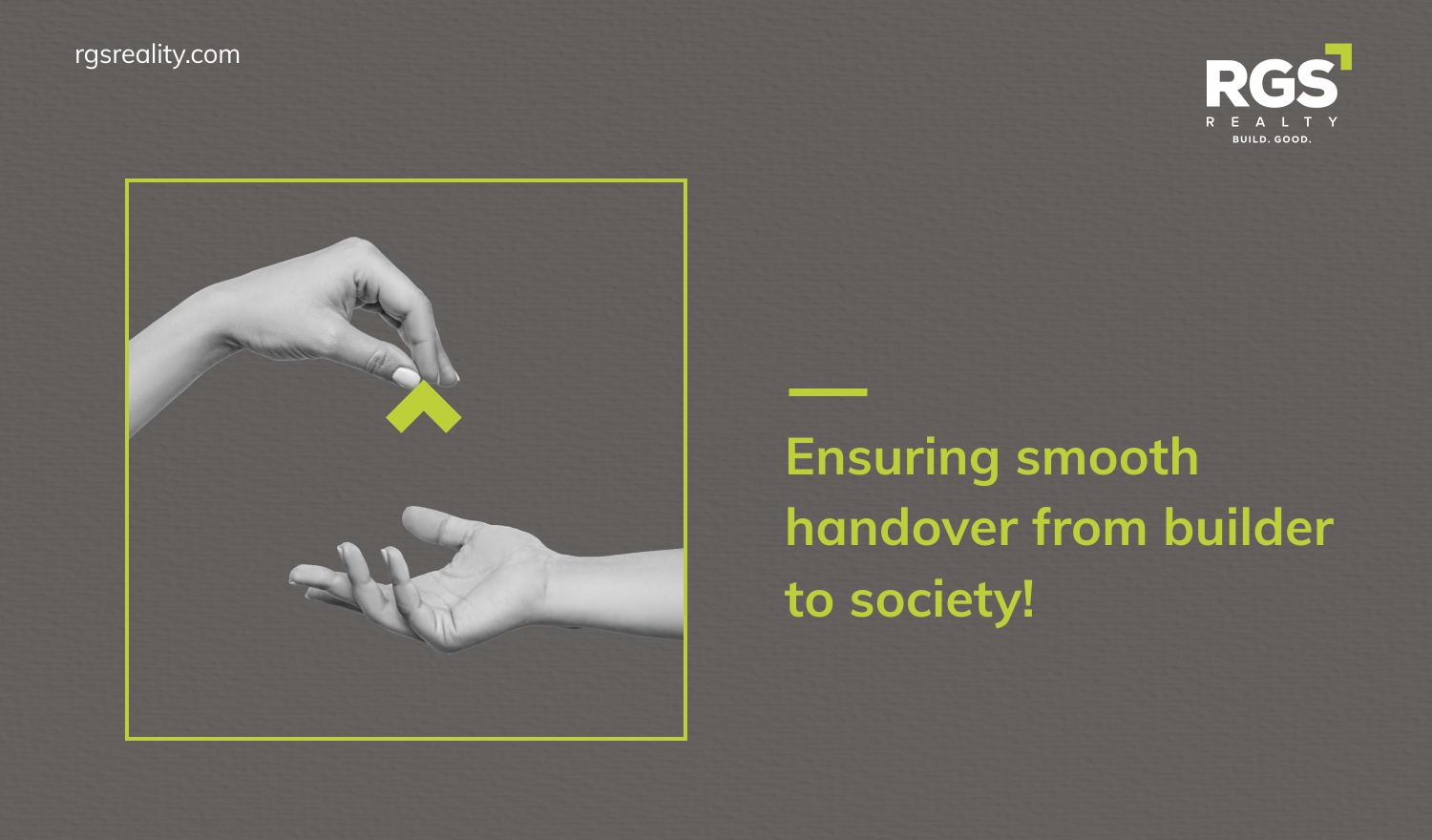With the economy finally in recovery mode (at least from the looks of it), this post-pandemic era has seen the rise of real estate across the country. There are many residential complexes and societies established daily, and almost an equal number, if not more, real estate projects are being launched. The handover of the residential premise from the developer/builder to the Residential Association/Society is as important as the successful possession of your flat.
The handover from builder to co-operative/ association is critical and requires due diligence from both parties involved. For the handover legalities to come to fruition, including the financial, operational, and technical aspects, a time span of three to five months is required. This is, however, very crucial as once the builder completes the handover to the society, any future compliances of the building fall under the society’s responsibility. We understand how daunting this might seem, especially to people taking charge of their society for the first time. Hence, RGS Realty brings you a detailed guide to aid you through the process.
- Formation of your Resident Welfare Association:
Forming a Resident Welfare Association [RWA] is the first step towards a smooth handover. Only after the formation of the RWA can the maintenance work be handed over by the builder to the residents.
- Documentation handover:
The handover of documentation is crucial to this process. A number of legal, financial, and building documents need to be handed over to the RWA. The association or managing committee must have all the information about the building. Approved building plans, NOCs, Completion Certificate, Occupancy Certificate, all financial records and papers, and even the legal documents signed between the builder and the landowner must be handed over to the society by the builder.
- Maintenance charges:
The maintenance charges are not usually mentioned during the sale and are divulged only at the time of handover. These charges are levied for the maintenance and upkeep of the society and common facilities and areas. These spaces might include lobbies, elevators, gardens, parking places, and centralized services such as power and air-conditioning. While builders commit to several amenities when marketing their projects, some facilities may get delayed or fall short of the standard promised. The RWA should ensure that all amenities are available and in accordance with the sale agreement at the time of handover to avoid future conflicts.

